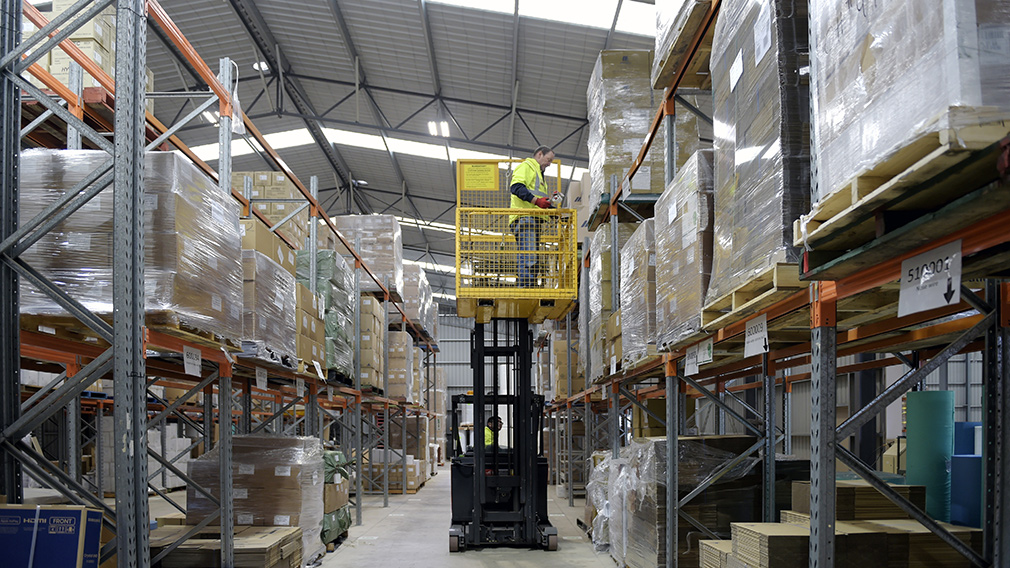Debt, equity, other…recovery requires it all

The Business Growth Fund will invest in established businesses that generate annual revenue of $2m-$100m. (Getty)
Nearing the end of a year like nothing most of us have lived through before, it’s impossible to overstate how important kickstarting the economy has become.
Thankfully, we’re again getting on top of the health crisis and Victoria is gradually emerging from its challenging lockdown, as other states continue their respective – albeit uneven – recoveries.
However, it’s a long road ahead to get on top of the economic crisis and recover the output lost following the historic 7 per cent contraction in GDP in the second quarter. I’m a natural optimist, but we also can’t ignore the fact growth was already running below trend before the pandemic, impacted by soft business investment, weak wages growth and US-China trade tensions – not to mention the devastating bushfires.
So as the recovery from COVID-19 takes hold and economies open up, there’s never been a more important time to back our small and medium enterprises (SME). Positively, the government stepped up with a supportive budget, delivering good measures such as accelerated depreciation allowances for businesses for almost all Australian businesses out to mid-2022 and hiring subsidies to encourage employment.
.png)
The personal income tax cuts will also put more cash in consumers’ pockets. Businesses will only invest if they expect demand – and thus a return on that investment – will be there. Tax cuts help this process and it was encouraging to see our Economics team upgrade their growth forecasts in the wake of the budget and also become more upbeat about the housing market. At around three quarters of the economy, the private sector and households are critical to the recovery, given we know emergency government spending and supports – as important as they’ve been – can’t last forever.
That’s why banks, regulators and governments must continue to do everything they can to clear the way and enable private enterprises and entrepreneurs to take the baton and power the recovery in 2021 and beyond.
One of the latest initiatives is the federal government’s Australian Business Growth Fund (BGF). Its backed by a number of banks – including $100m from Westpac – and the government, and will provide a new source of long-term equity investment to established businesses that generate annual revenue of $2m-$100m. At more than $500m, its initial investment capacity is not immaterial amount for a new investment fund and aims to grow over time.
In the UK, a similar “patient” growth equity finance fund set up in 2011 and backed by the nation’s major banks has grown to £2.5bn and invested more than £2bn across more than 280 companies since inception, successfully realising many of these for the investors.
While debt will remain an appropriate funding source for many Australian small businesses, there has long been a gap in the market for SMEs seeking patient equity capital that is not directly addressed by venture capital or private equity. Following COVID, that gap may even grow given lingering uncertainty could weigh on risk appetite, making the BGF a timely addition to the market. Indeed, since being flagged last year, some of our more than 700,000 SME customers have been telling us the BGF will provide a new potential path to scale.
It’s actually a space and approach we have experience in because our view has long been that anything to help entrepreneurs and innovators get on with growing their business is what will ultimately drive Australia’s prosperity over the long term. In the past five years or so, Westpac has committed or invested more than $300m in start-ups and early stage businesses through the Group’s fintech venture capital fund Reinventure and our Business Development division, plus supported many more through our Businesses of Tomorrow program.
Yes, bank equity funding in SMEs has historically been small relative to debt. This isn’t surprising – one of banks’ core roles is to help customers by borrowing for short periods and on-lending to households and businesses for longer periods, often with powerful results.
For example, the Australian Banking Association this week revealed banks approved more than $41bn in loans for SMEs and sole traders since February, notwithstanding heightened uncertainty and mixed demand amid the worst downturn since the 1930s. As data on business failures from the RBA this month showed, bank repayment deferrals and support – along with government measures such as the JobKeeper wage subsidy scheme – has helped many businesses navigate COVID-19 restrictions.
Unfortunately, while it’s inevitable not all businesses will make it through the so-called “cliff” when these support measures roll off, particularly those most impacted by social distancing requirements and border closures, Westpac is committed to helping as many businesses through to more “normal” times as we can.
In the longer term, I have no doubt the many businesses that do come through the other side will ultimately look to grow. This is where the BGF plays an important role – providing additional funding options for SMEs alongside traditional bank loans and thus increasing market efficiency.
COVID-19 has only made that even more timely and important for the economy as we look to recovery.
The information in this article is general information only, it does not constitute any recommendation or advice; it has been prepared without taking into account your personal objectives, financial situation or needs and you should consider its appropriateness with regard to these factors before acting on it. Any taxation position described is a general statement and should only be used as a guide. It does not constitute tax advice and is based on current tax laws and our interpretation. Your individual situation may differ and you should seek independent professional tax advice. You should also consider obtaining personalised advice from a professional financial adviser before making any financial decisions in relation to the matters discussed.



